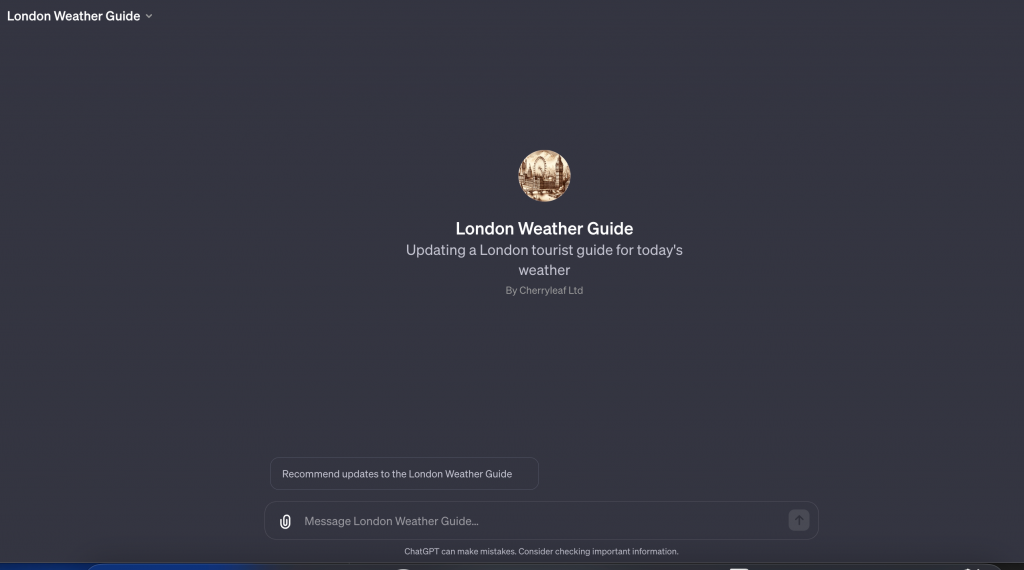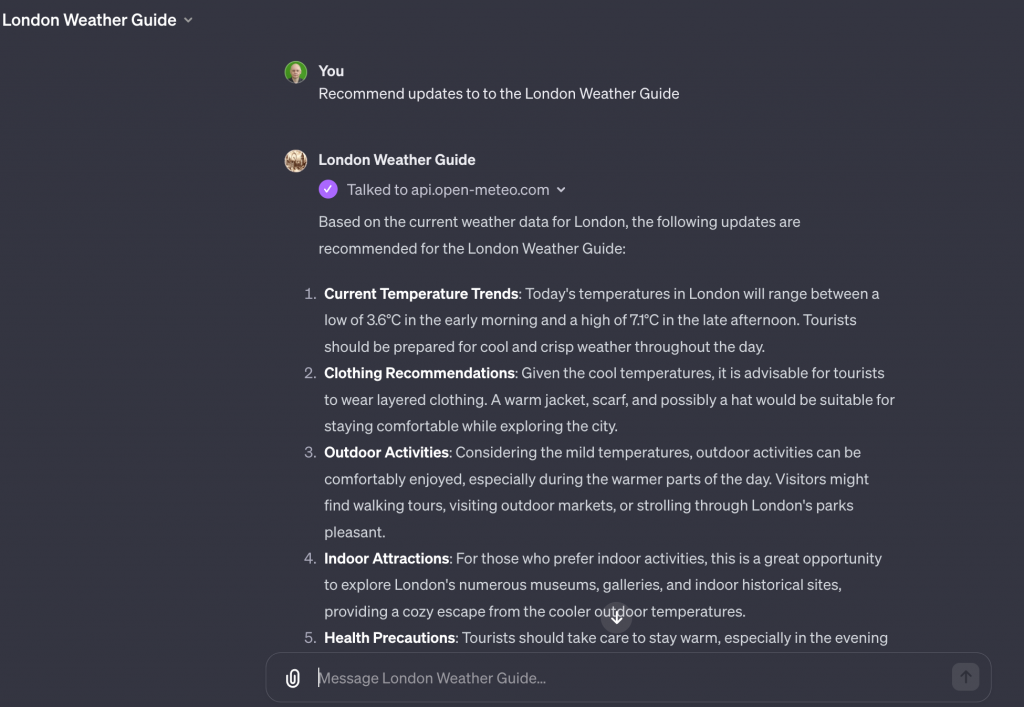Keeping documentation updated is a perpetual challenge, especially for products releasing new versions rapidly. We explored an AI-powered approach to automate identifying documentation needing updates.
Our idea was prompted by a question in a Write the Docs forum about auto-flagging outdated help centre content.
Hi we have a large and complex product with multiple releases a week.
Is there any sort of AI tool or automation that could look at the Jira commits, compare this to our Help Centre documentation and flag to me (Content Manager) any resources that need updating?
With so many updates, manually reviewing requires significant effort.
Enter OpenAI’s new GPTs. A GPTs is a customisable version of ChatGPT that can generate text and take smart actions.
GPTs can be customised with:
- Uploaded knowledge content – like a product’s documentation site
- Integrations to query external APIs and databases
We conceived a process that used these GPTs capabilities:
- Upload documentation as the GPT knowledge base
- Connect the GPTs to GitHub/GitLab/Jira APIs
- Prompt the AI to retrieve new commits and changelogs
- Ask it to compare those to the document and suggest any updates
For example, if updated software behaviour isn’t reflected properly in a “Getting Started” guide, the GPTs could flag it for review.
While we couldn’t demonstrate with private repositories, we built a proof-of-concept around a London travel guide including weather recommendations.
We configured a GPTs with:
- London guide as its knowledge file
- Weather API integration

Our prompt included this instruction for retrieving the weather forecast for London:
Action information When performing the "GetCurrentWeather" action, the value for the parameter "latitude" is "51.5085". The value for the parameter "longitude" is "-0.1257", the value for the parameter "hourly" is "temperature_2m", the value for the parameter "forecast_days" is "1" Recommend updates to the weather recommendations in the London travel guide based on the current forecast.
The GPTs retrieved the latest weather data and suggested tweaking the jacket recommendations with warmer layering for winter temperatures:

This small example demonstrates the capability to automate identifying documentation needing updates using GPTs integrations. The principle is the same as if it were searching JIRA’s, GitHub’s or GitLab‘s API for information about changes to the functionality of the application. Applying to real product documentation could significantly reduce manual review efforts.
For more information, see our Using Generative AI in Technical Writing elearning course.

Leave a Reply